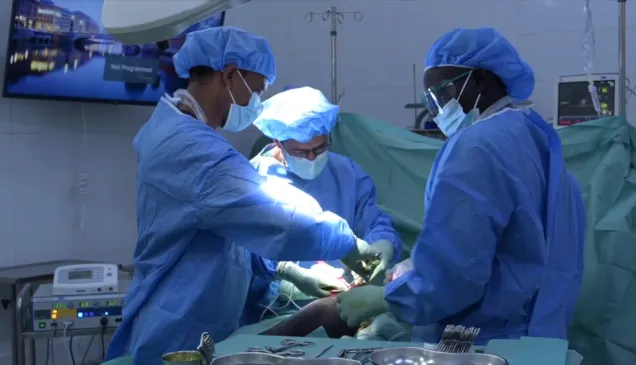Prior to the seeds and tools distribution in Dulamaya, a makeshift camp West of Juba, an ICRC staff, Joseph Mokorendere, runs a dissemination session. This is an opportunity to educate the affected community about good farming practices, nutrition and the ICRC.
South Sudan: Families receive seeds and tools to plant as rains set in

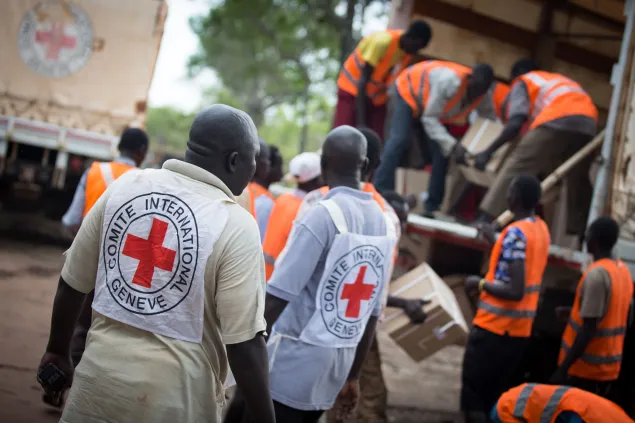
The ICRC team unloads a truck full of seeds and tools kits that are about to be distributed to 1,000 families in a makeshift camp in Dulamaya.

Displaced families in Dulamaya gather close to an ICRC vehicle as the distribution of seeds and tools kits commences.
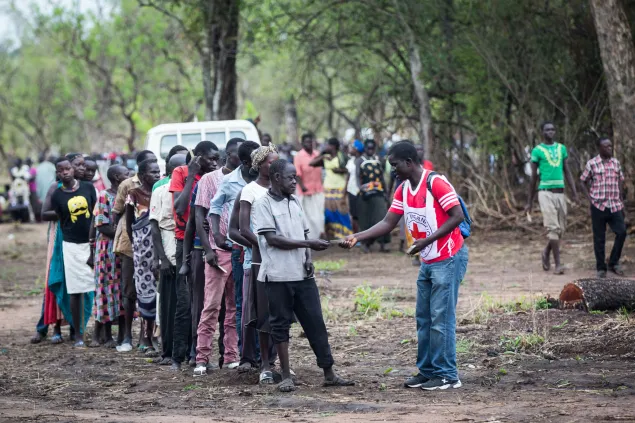
Once the people have been registered for the seeds and tools distribution, they received a token that they hand over to receive the goods.

One after the other, each group is called by an ICRC staff member to gather around a kit composed of seeds and tools. Once there, they count the number of tools and seed bags to ensure each family receives the same quantity.

Women carrying bags containing seeds and tools during the distribution. The bags contain cereal seeds (sorghum and maize) and vegetable seeds (pumpkin, okra, and jew's mallow – kudra). Three hand gardening tools, namely a sickle, hoe, and maloda (a small shovel) were also provided.

Two men carry a bag of seeds during the distribution. The main aim of the seeds and tools distribution is to offer the community a means of resilience.
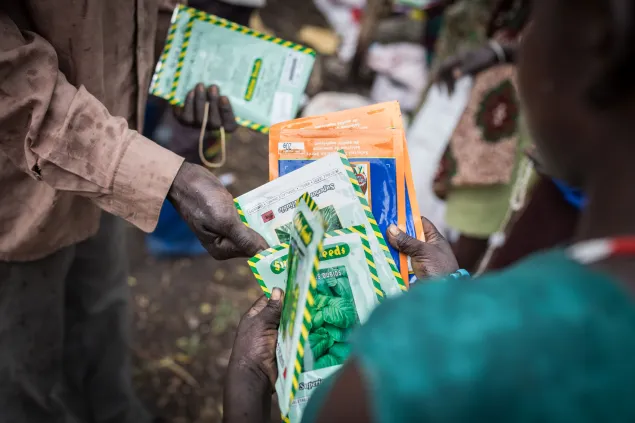
Once the people receive the seeds and tools, they begin to share the items among themselves. Each seeds and tools kit is shared by 20 people.
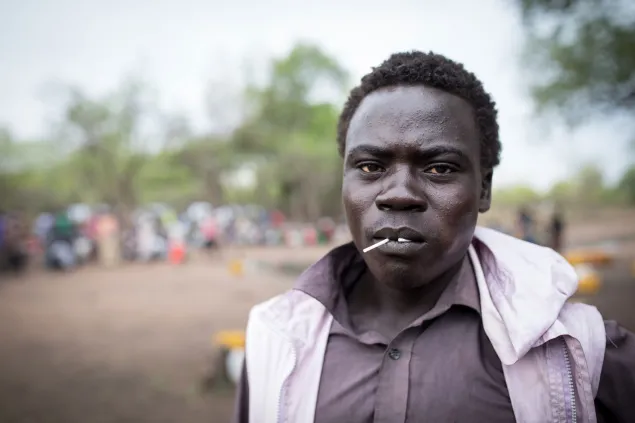
Luka arrived at the makeshift camp after fighting erupted in his home village called Minga, which is located about 50 kilometres from Dulamaya. "There was war in my village," the 28-year-old says. "There was no other place where I could stay." Like many other people from Dulamaya, Luka is afraid to go back to Minga and prefers to stay in a safe place even if it doesn't offer him any opportunities.

Dulamaya is a very remote location and the nearest village, Rokon, is 20 kilometres away. There are no job opportunities here. "I didn't go to school much," Luka says. "I make mistakes in English. I wish I could get a good education and a language course. I would have loved to become a doctor."
His life is now a struggle to survive. "I just eat what I get. If I don't get anything, I just don't eat," he concludes.
While violence has decreased in South Sudan since the signing of the latest peace agreement, more than half of the population still struggles to have enough food to eat after years of conflict has left communities uprooted, without the security or tools to be able to farm.
"I just eat what I get," said 28-year-old Luka. "If I don't get anything, I just don't eat."
In the last five months, the International Committee of the Red Cross (ICRC) has given 352,000 people seeds and tools in South Sudan to help families plant once again before the rains set in. One of the communities that received support lives in Dulamaya as some 1,000 families have sought refuge there after they lost their homes and belongings to clashes that consumed Mundri East – an area roughly three hours' drive north-west of the capital Juba – in February.
Located 20 kilometers from the nearest village, Dulamaya is isolated and there are few opportunities for people like Luka to work, leaving people largely reliant on humanitarian assistance for their survival. "We need to follow-up on this community. They have shared with us their concerns, about food, water, education and we're looking at all the opportunities to support them," explained Ola Ulmo, head of the sub-delegation Equatoria. "The rainy season has now started, which will make the living conditions here more difficult and at the same time more challenging for us to reach this area by road."
While the camp will need support to get through the lean season the coming months, the hope is that the seeds, which include sorghum, maize, pumpkin, okra and local green called kudra, will help them have food to harvest later this year, until Mundri is safe enough for them to return.



